Toxic parents injure their children, they are brutally treated with them, humiliate, cause harm. And not only physically, but also emotionally. They do it even when the child grows.
Type 1. Parents who are always right
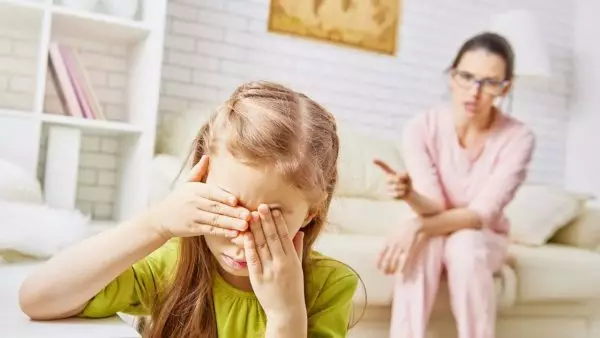
Interesting: Rules of education of American mothers who are worth using in our country
Such parents perceive the disobedience of the child, the slightest manifestations of individuality as an attack on themselves and therefore are protected. They insult and humiliate the child, destroy his self-esteem and cover it with a good goal.
How does the effect manifest? Usually, children of such parents believe in their correctness and include psychological protection:
Negation. The child has a different reality in which his parents love him. The denial gives a temporary relief that is expensive: sooner or later it leads to an emotional crisis.
- In fact, Mom does not offend me, she opens his eyes to an unpleasant truth, "children of such parents often consider.
Hope. Children with all their forces cling to the myth of ideal parents and blame themselves in all their misfortunes:
- I am not worthy of a good relationship. My mother and father want the best for me, but I do not appreciate it.
Rationalization. This is a search for good reasons explaining what is happening to make it less painful for the child. Example: "My father hit me to teach me a lesson."
What to do? Aware that the child is not to blame for the fact that Mom and Dad are constantly resorting to insults and humiliation. So trying to prove something to toxic parents, no sense. A good way to understand the situation is to look at the eyes of a third-party observer. This will help realize that parents are not so impeccable and rethink their actions.
Type 2. Parents who behave in childish
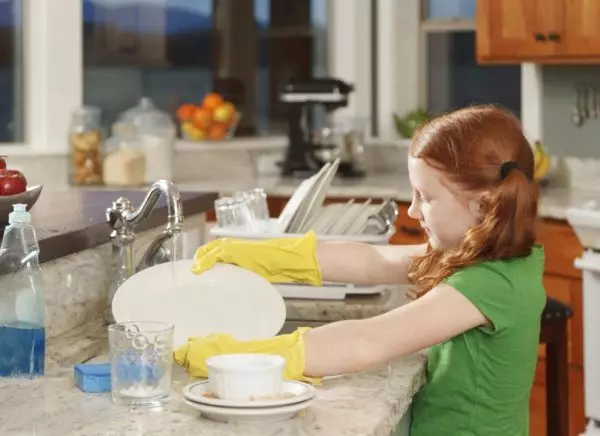
See also: The child shakes his parents. How will wise mom and dad arrive
Determine the toxicity of parents who do not beat and do not offend the child, harder. After all, the damage in this case is not caused by the action, but inaction. Often such parents behave like helpless and irresponsible children. They make the child early to grow and satisfy their own needs.
How does the effect manifest? The child becomes a parent for himself, younger brothers and sisters, his own mother or father. He loses his childhood.
- How can I go walk if you need to wash everything and cook dinner? - Olga spoke at her 10 years. Now she is 35, she breaks his mother in everything.
The victims of toxic parents feel the feeling of guilt and despair, when they cannot do something for the benefit of the family.

"I can't put a younger brother to sleep, he cries all the time." I am a bad daughter, - Another example of thinking out of such a family.
The child suffers due to the lack of emotional support from parents. Becoming an adult, he is experiencing problems with self-identification: who he is, what does it want from life? It is difficult for him to build relationships.- I studied at the university, but it seems to me that this is not the specialty that I like. I do not know who I want to be, - the man is divided by 27 years old.
What to do? Help parents should not take more time from the child than studying, games, walks, communication with friends. Proving the toxicity of parents is difficult, but you can. For example, operate with the facts: "I will not have time to make my affairs, so any help or later, or is completely canceled."
Type 3. Parents that control

Interesting: The famous Chinese actress refused children born by surrogate mothers than the public resonance caused and broke his career
Excessive control may look like ordinary caution. But parents are afraid to become unnecessary and therefore do it so that the child makes the most dependent on them, so that he felt helpless outside the family.
Favorite phrases of controlling parents:
- I do it only for you and for your good.
- I did it because I love you very much.
- Make it, or I will no longer talk to you.
"If you don't do this, I have a heart attack."
- If you don't do this, you are not my son / daughter.
All this means: "The fear of losing you is so great that I am ready to make you unhappy."
Manipulators preferring hidden control reach their desires, but a tricky way - cause a feeling of guilt. They do everything so that the child headed a sense of duty.How does the effect manifest? Children under the control of toxic parents do not want to be active, to know the world, overcome difficulties.
"I am very afraid to drive a car, because my mother always said that it was very dangerous," says Oksana, 24 years old.
If the child is trying to quarrel with his parents, do not obey them, he threatens the feeling of guilt.
- I left with a friend for the night without permission, the next morning my mother was in a hospital with a sick heart. I will never forgive myself, if something happens to her, is a story of the life of 19-year-old Igor.

Some parents love to compare children with each other, create an atmosphere of jealousy in the family:
- Your brother is much smarter than you.
The child constantly feels that he is not good enough, trying to prove his worth. It happens like this:
"I always wanted to be like my older brother and, like he, even entered the Law Institute, although he wanted to be a programmer.
What to do? Exit from under control, without fear of consequences. This is usually ordinary blackmail. When a person understands that he is not part of his parents, he ceases to depend on them.
Type 4. Parents that have dependencies
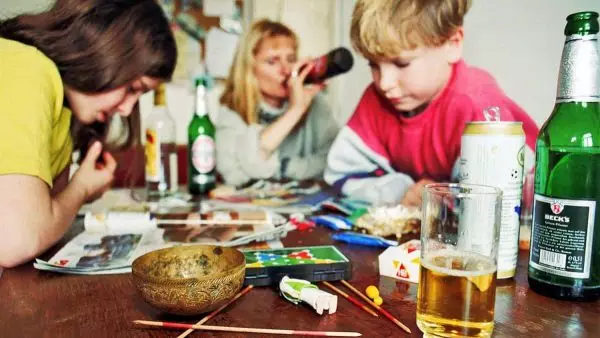
See also: The story of one mother who threw a drink for children
Alcoholic parents usually deny that the problem exists. The mother, suffering from the drunkenness of the spouse, protects him, justifies the frequent use of alcohol with stress.
The child usually says that one should not bear sorrows from the hut. Because of this, he is constantly in tension, lives in fear accidentally betray the family, reveal the secret.
How does the effect manifest? Children of such parents often cannot create their families. They do not know how to raise friendship or love relationships, suffer from jealousy and suspicion.
"I am always afraid that a loved one will be offended, so I don't have a serious relationship," Angelina, 38 years old.
In such a family, a child can grow hypersensitive and defenseless.
- I always helped my mother to confront a drunken father. I was afraid that he himself would die or kill his mother, I was worried that I could not do anything with it, "Oleg says, 36 years old.
Another toxic effect of such parents is the transformation of the child in the "invisible".
"My mother tried to save his father from drunkenness, encoded him." We were granted by ourselves, no one asked if we would eat, as we learn what worries us - the story of 19-year-old Elena.

Children feel guilty of adults.
"When I grew up, I always talked to me:" If you behave well, Dad will throw a drink, "said Christina, who is 28 years old now.
What to do? Do not take responsibility for making parents. If you are sure to condemn them in existence, they will most likely think about solving. Communicate with prosperous families to get away from the belief that all parents are the same.
Type 5. Parents who humiliate
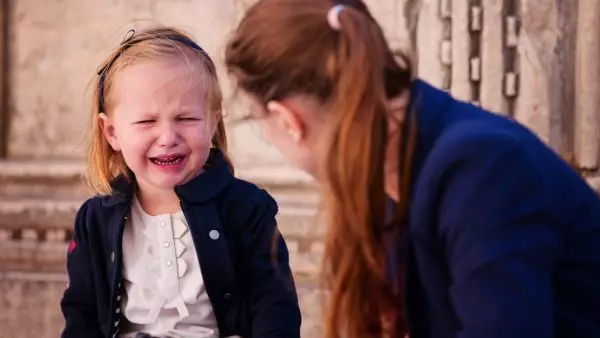
Read also: You have constantly crying a child - whether it means that you are bad parents. The story of one mother who coped with this problem
They often insult and criticize the child without a reason or ridicule it. It may be sarcasm, mockery, offensive nicknames, humiliation that they are issued for anxiety:
- We must prepare you for cruel life.
Parents can make a child "partner" process:
- Do not be offended, it's just a joke.
Sometimes humiliation is associated with a sense of rivalry:
- You can't achieve more than me.
How does the effect manifest? Such an attitude kills self-esteem and leaves deep emotional scars.
- For a long time I could not believe that I could do more than to endure the garbage, as my father said. And I hated myself for this, "says Alexander, 34 years old.
Children sabotize their achievements. They prefer to underestimate their real opportunities.

- I wanted to take part in the tissue contest. I was well prepared for him, but did not decide to try, "Karina said, 17 years old. - Mom always said that I was dancing like a bear.
Toxicity of this kind can turn into unrealistic hopes of adults to the child. And he suffers when illusions are crumbling.- Dad was sure that I would become an excellent football player. When I threw the section, he said that I did not stand anything, "Victor, 21 years old.
Children who have grown in such families often have suicidal inclinations.
What to do? Find a way to block insults and humiliation so that they do not harm. In conversation, respond is monosyllant, not to manipulate, not to insult or humiliate yourself. Then the toxic parents do not achieve their goal. The main thing: do not need to prove anything.
Call and personal conversation is better completed before starting to experience uncomfortable sensations.
Type 6. Parents that apply violence

See also: "Mom, dad loves me, what do you think?": Father's story who could not love the adoptive child
On the same way, parents went, for whom violence is the norm. For them, this is the only way to get rid of anger, cope with problems and negative emotions.
Physical violenceSupporters of corporal punishments usually seriously believe that slaps are useful for education, make a child brave and strong. In fact, everything is the opposite: the beatings are applied the greatest psychological, emotional and physical harm.

Susan Forward in his books about toxicity in the family characterizes incest as "emotionally destructive betrayal of confidence between the child and the parent, an act of extreme perversion." Small victims are in the power of the aggressor, they have nowhere to go, and none of them can ask for help.
90% of children who survived sexual violence are not talking about it.
How does the effect manifest? The child feels helpless and desperate, because a cry for help can be fraught with new outbreaks of anger and punishment.
"I didn't tell anyone until I reached the majority that my mother beat me." Because I knew: no one would believe. I explained huge bruises in your arms and legs by love to run and jump, - Tatiana, 25 years old.
Children begin to hate them, their emotions are constant anger and fantasy about revenge.Sexual violence does not always mean contact with the child's body, but it acts destructive in any manifestation. Children feel guilty of what has happened. They are ashamed, they are afraid to tell someone what happened.
Children keep pain inside not to break the family.
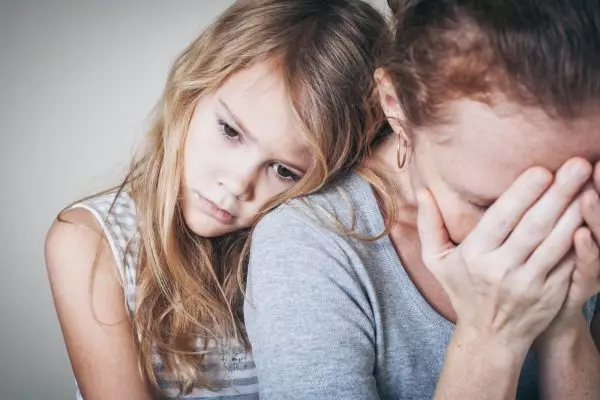
"I saw that my mom loves stepfather." Once I tried to tell her that he treated me as a "adult". But she so cried that I was no longer dared to talk about it, - Inna, 29 years old.
A person who survived violence in childhood often leads a double life. He feels disgusting, but it is pretty a successful, self-sufficient person. Can't establish a normal relationship, considers himself unworthy of love. This is a wound that is not cured for a very long time.What to do? The only way to escape from the rapist is to distance them, run away. To seek help to relatives and friends who can be trusted to psychologists and police.
Obviously, children are not always able to realize in which family they grow. Adults are divided by their experience, who already understand where their problems come from. However, with the consequences of such childhood can be struggling. It is important to remember - it is not uncommon, millions of people rose in toxic families, but were able to become happy.
